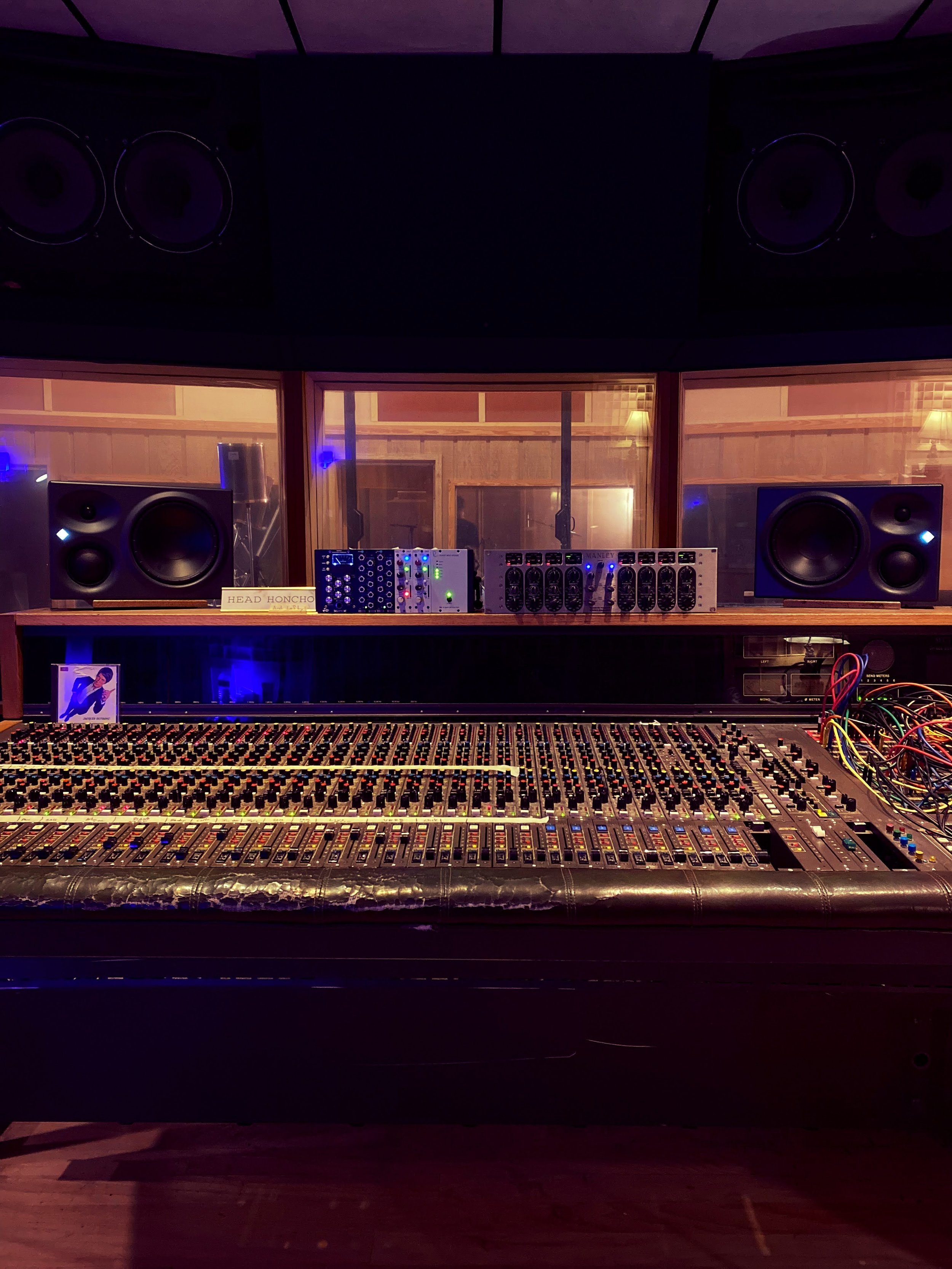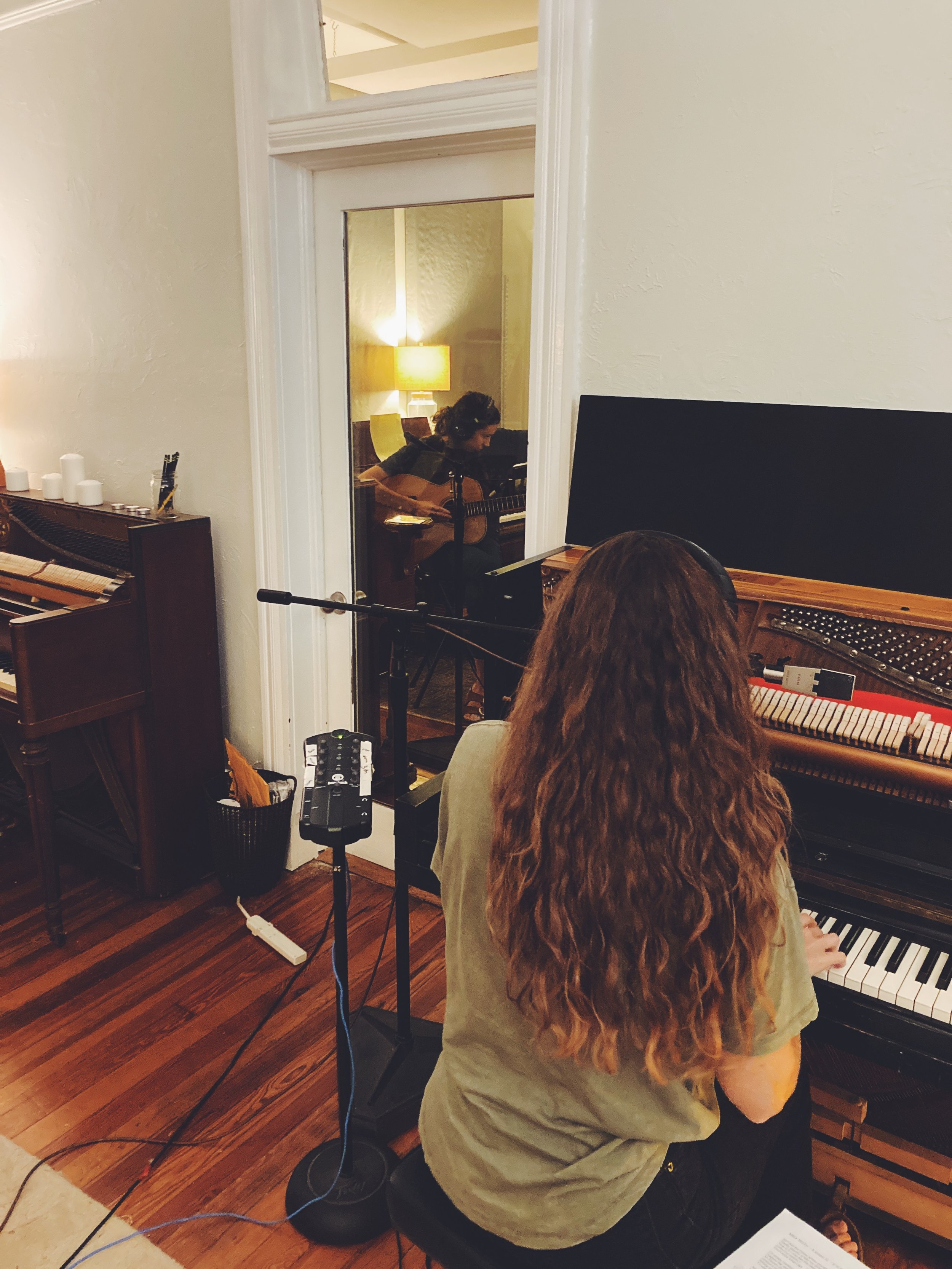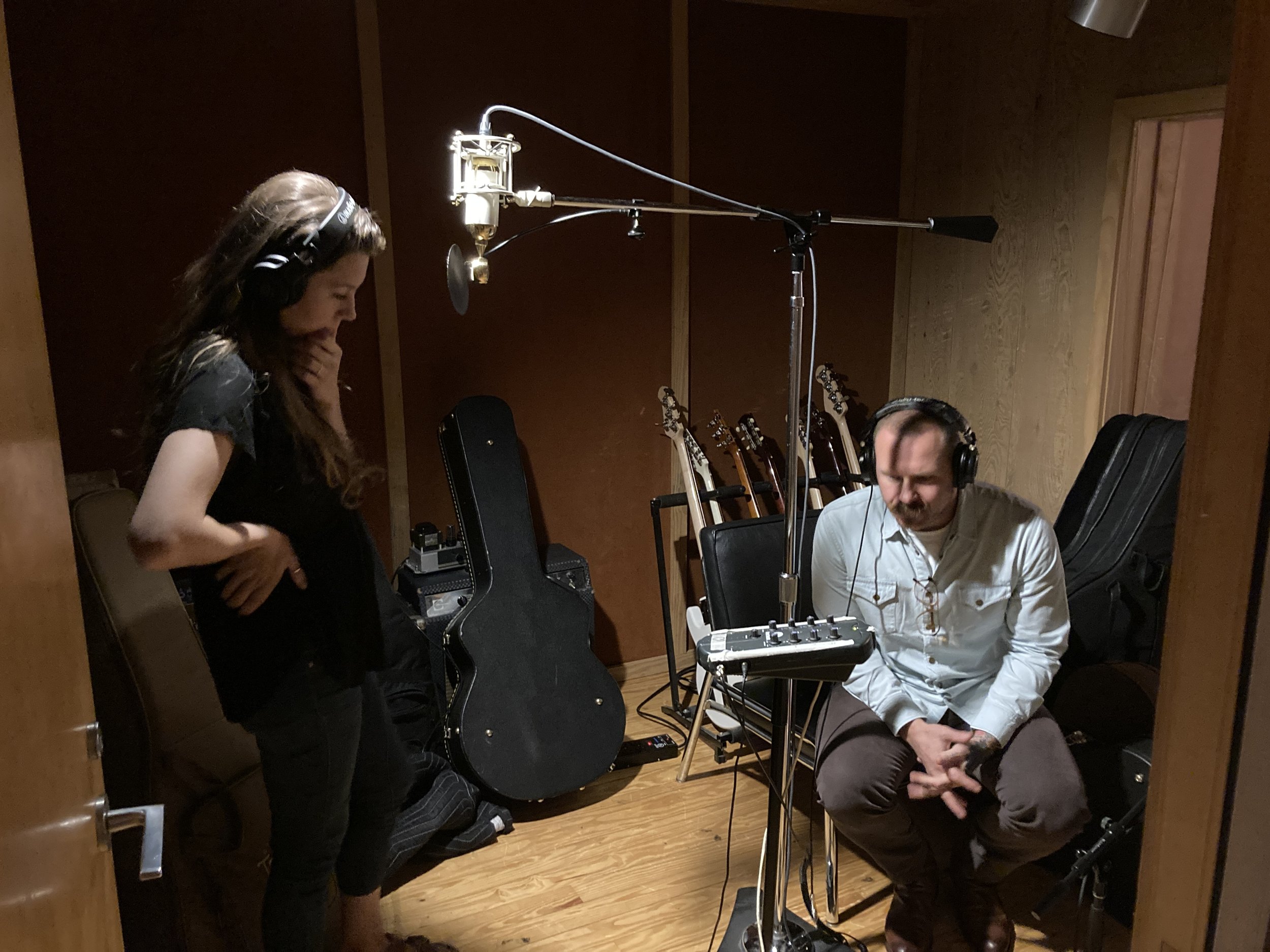Production Notes: Ryvoli’s “Milk Teeth”
When I was starting out in production and engineering, YouTube wasn't a thing and podcasts weren't a thing. My main sources for information were books, Tape Op (still an awesome resource), and forums. I learned a lot from those places but my favorite source was the handful of people that documented their recordings on their blogs. Most notably, John Vanderslice. John is a singer-songwriter who owns an analog studio called Tiny Telephone in the Bay Area.
Reading his blog sent me down many a rabbit hole. It's where I first heard the names of lots of recording techniques, engineers, and pieces of analog gear.
Somewhere in the back of my head, I made a vow that I would do a similar blog someday. I'm a little late to doing this because I've produced a handful of interesting projects over the past decade but hey, better late than never! I'm going to start jotting down some thoughts on the new Ryvoli tunes as they come out.
Vintage Console Issues
During the recording at Portside, the console had developed some kind of horrific popping sound. I'm not talking about a mild pop. I'm talking about a scare-the-ever-living-shit out of you pop. It was ten times louder than whatever music we were listening to was. And in the middle of a delicate Indie folk tune, it was making work impossible.
We also ran into an issue with two of the piano-based songs, Milk Teeth and Over. The girls had worked on these songs on Jenn's felted upright piano and wanted to capture that sound in the studio. Portside had a few grand pianos but they were too bright and unable to be felted. The song "Old Time Rock N Roll" by Bob Seger was recorded there. That'll give you an idea about the brightness.
There was talk of tuning up an old upright they had in the hallway but when the console shit the bed, Chris Bethea had another idea. He suggested that we go work at Sun Drop Sound for the day. They had the piano sound we needed and it would give Portside's owner, Jaime, and their tech, Danley, time to sort out the console situation.
It turned out to be a bad channel and it was as simple as removing that channel strip from the console to fix the popping. Fun fact: they also found an almond in the channel which may or may not have been contributing to the dysfunction.
Recording At Sun Drop Sound
So anyway, at Sun Drop Sound, Ben Tanner got us set up on their beautiful upright and we got to work. Jenn played the piano while Sam played her guitar in the other room. We had rehearsed these two tunes at Portside on a Nord the night before so the girls were comfortable with their parts. This gave us the opportunity to go for a live, no-click take of their instruments. We overdubbed vocals right after. I'll get into that in a minute.
These two songs were so delicate that a click would have completely steamrolled the feel. The take couldn't have taken more than about an hour or so. What you hear on the recording was a comp between two takes.
Whenever I hear the girls play together I'm astounded by their feel. They are definitely one unit. Both of them have this ability to just sit at a very slow tempo and make it feel like waves or those little jellyfish moving through the tank at the aquarium. With the way Jenn plays, I felt like I was listening to Bill Evans playing a Ryvoli song. She's so good!
In hindsight, doing the whole record like this at the start would've been great. We could have had the two of them in a small studio until the core takes could stand alone. And then build on top of that.
That feeling seems to go with every project. "If I could do it again with the knowledge of having already done it, I would've done it in a straight line from the start." It's a myth that anyone else is making good work in that manner.
As Jerry Seinfeld says,
If you’re efficient, you’re doing it the wrong way. The right way is the hard way. [Seinfeld] was successful because I micromanaged it — every word, every line, every take, every edit, every casting. That’s my way of life.
I'm writing that not because I've learned the lesson. I need constant reminding that this is the way to make art. Being the guy in charge of the logistics of things is often at odds with the way that art works.
Tracking Vocals
Tracking vocals. This isn’t for Milk Teeth but it’s Sam and Andy near a mic so that’ll do.
After that, Andy Baxter, from Penny & Sparrow, and Chris Bethea came over and we had lunch. About two bites in, Sam puked from morning sickness. This was a little concerning since we were about to get started on vocals! But that's how much of a champ she is. She took a minute, collected herself, and then went in and sang the vocals you hear on this track. Moms are incredible.
One of the luxuries we had on this album was vocal coaching from Andy. I've coached plenty of people through vocals but I'm a complete amateur compared to what Andy can do. He's a fantastic singer in his own right both on a technical level but also from an artistic standpoint. He and Sam both have the ability to sing what we mere mortals would call "perfect" ...and then pick it apart and make it even better.
Most of what I remember Andy instructing Sam on was letting vulnerability and rawness through. With a singer like Sam or Andy, they have to allow their voice to not be perfect all the time. Andy would instruct her to have her voice break in certain spots or ghost a high note that she could actually hit for the effect. He also suggested a lyric change, which the girls opted for on the line "why is she in both our heads?"
All that added up to a vocal that draws you in. Also, it was around this time that I started getting the sense that the vocals on this album should lean towards dry and in-your-face. With a dry vocal, there's a level of rawness and intimacy that hits the listener in a different way than a reverbed vocal. Instead of being distant from the listener, the vocal is an inch away from their ear. And on music like this, that's important because most people are listening on headphones.
I don't know when everyone else came to that conclusion but by the time we got to mixing it was pretty much understood that that's how it was going to be.
Once we finished the vocals, we were alone in the studio because Ben had to pick his kid up from school. So we swung some mics over and Jenn laid down the pump organ that you hear on this track. It was beautiful. It's very hard to find a functioning, in-tune pump organ. If you find one, figure out how to buy it. It's worth it.
Overdubbing Pump Organ
Making It Dreamy
After the Alabama trip, we got home and realized that for this subject matter (recounting a dream) a single-tracked vocal wasn't dreamy enough. It needed to be more psychedelic. When I think psychedelic, I imagine John Lennon with his pupils maxed out from LSD behind his round spectacles. And John Lennon often double-tracked his vocals. That's the sound we needed.
So later, I took a trip to Kentucky and we recorded for a day at Paul and Elizabeth Varnado's house. (They’re in a killer band called, Lylak) Sam double-tracked her vocal in one take. I've never seen anything like it. I thought for sure that she would need to listen to each line's subtlety and punch them one by one. Nope. She sang it top to bottom with all the nuance of the original take!
The reason for the trip to Kentucky was for Jenn to record her harmonies. But she had a cold so we pivoted and did some overdubs. We ended up recording her harmonies at my house in San Antonio later on.
Finishing Touches
The San Antonio session was the last time we worked on this album together in the same room. After that, Mitch Webb arranged, played, and recorded his own horn parts, as is his preference. Mitch and I are polar opposites when it comes to recording styles and I love that about him.
I'm kind of like a bull in a china shop. I like to throw a bunch of things at the wall in a flurry of un-precious, creative excitement and see what sticks.
Mitch prefers to sit on a lotus flower and ponder the meaning of life as butterflies gravitate towards his gentle spirit. Once he has tapped into all that is good in the universe, he will emerge with exactly the right part and then play it.
It is incredible to witness his gifting and talent and I love the times when I'm able to let him do that. Yet as I'm the guy managing the budget and timeline, I can get a bit whip cracky. Sorry, Mitch, I'm working on it.
Side note: as a producer, I like to keep an eye out for people that are completely different from me. You want people that are different from you on your team. You have blind spots and no one is good at everything.
For me, Hell on earth is spending 4 hrs. on the nuance of the 3rd keyboard part overdub in the second verse. For Mitch and a few other musicians I work with, this is their happy place. They have endless energy when they're involved in a task like that. Nothing drains my battery faster.
It's my job to try and set up a scenario where everyone can do their thing. I'm not always successful and a lot of times we have to do things we don't like. Heck, I did a bunch of acoustic guitar overdubs this week. And Mitchell has had to keep up with tracking me as I'm jumping from instrument to instrument. But more and more, I try to move towards my unique abilities and want to help others on my teams do the same.
After the horns, Mitch did a few fixes and then sent the session to Bethea to mix. This was the first or second song that Bethea mixed and, right out of the gate, it was fantastic. But then Sam wanted to push the vocal treatments further and had the idea of generating some harmonies with a harmonizer/vocoder plugin.
Enter BAxtertown
Mitch pieced those together and that triggered the idea of having Andy sing on it, which of course he crushed.
Remember the Seinfeld quote about efficiency? Recording overdubs after mixing the song is the opposite of efficiency. But listen to the result! This song guts me every time I hear it and I've heard it a lot. Hope you enjoy it!
-Chris



